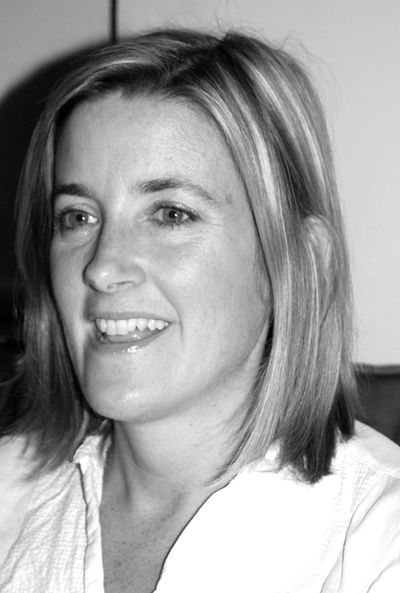Our crime specialist Fiona Hardy talks with Nadia Dalbuono about her writing process, Italy and her debut crime novel.
You’ve spent the past fifteen years travelling the world as a documentarian for various companies in the UK. Were you scribbling story ideas in your downtime while on location, or has writing fiction been a recent creative pursuit for you?
I wasn’t exactly scribbling ideas but I did get some inspiration from my travels. I have always wanted to write but never really had the chance when I was working in documentaries. They were very long days and we often worked weekends so there wasn’t really much time for anything else. In the back of my mind I guess I’d decided that I didn’t want to be on the road forever and that writing could possibly give me the opportunity for a more settled life. It was when I started working as a consultant and the hours were more regular that I was able to take up writing properly. I found that it gives you a real sense of freedom that it’s difficult to find in TV where five different people want to throw in their opinion before the cut is completed.
I spent a lot of my time reading The Few with my laptop on my knee and Google Maps open so I could trace Scamarcio’s path around Italy and the places he visits. What was it about the landscape that compelled you to write a crime novel?
The idea for The Few came while I was on holiday on the island of Elba. I actually wrote the second part of the novel before I had written the first. I was sitting on a balcony overlooking the sea on a lovely September evening and started wondering about how appalling things can happen in beautiful places. And then the idea for the book slowly started to take shape. If you watch Italian news you’ll see how some of the country’s most squalid crimes often play out against breathtaking backdrops. I think there’s something interesting about that dichotomy.
Detective Leone Scamarcio is descended from Mafia royalty, but has chosen to leave that life behind and dedicate himself to the right side of the legal system. When he comes across situations in which a swift execution would be a vast improvement over bumbling police and tangles of red tape, it really tests his ethical stance, and, in turn, ours as a reader. Do you feel that sometimes public opinion can match Scamarcio’s moral quandary?
Yes I do. And with some crimes more than others, it’s particularly hard not to let your primal instincts for a swift execution take over. I think for Scamarcio it’s doubly difficult because he’s come from a background where settling things with a gun was the norm. His ethics are further tested by the fact that he’s forced to work inside a system which is, at best, inefficient, at worst, fatally flawed.
What’s in store for Scamarcio?
Well his next investigation has far-reaching international implications and is anything but the quiet case he could have done with after the events of The Few. Because of the highly sensitive nature of this new inquiry he finds his position in the force compromised and his private life under pressure. He’s forced to do some growing up and ends the novel a changed man from the Scamarcio of The Few.
What other crime fiction are you enjoying reading at the moment? Do you think there are enough Italian crime writers to start your own organised crime outfit?
Oh yes we could definitely start our own little mafia. Camilleri would have to do the catering – although I’m not sure whether his mouthwatering descriptions of Montalbano’s dinners come from the writer’s own expertise…
And for once, I’m not actually reading a crime novel but am really enjoying The Goldfinch by Donna Tartt. I think she’s a stunning writer. As regards crime and thrillers in general, I’m a big fan of Dennis Lehane, Michael Connelly, Lee Child, John Le Carre, Ian Rankin, Peter James, Linwood Barclay and Patricia Highsmith.
What’s an answer you’ve always wanted to give to an interview question no one has ever asked you?

The questions would be…
How do you stay motivated to keep writing before you’re published? How do you know that what you’re doing isn’t a complete waste of time?
The answer would be…
For me this was the hardest thing, sitting down at my desk everyday and wondering whether what I was doing would ever see the light of day. I think this is one of the biggest challenges for new writers. All around you, your friends are making strides in their careers and there you are doing something that might never go anywhere. In the end I decided to ignore all the self doubt and just escape to the world I was creating because I enjoyed being there and felt the need to keep writing, whether or not anyone else ever read the book. I told myself not to think about whether I found an agent and publisher and just keep going and worry about all that stuff later.
It wasn’t easy to reach this state of mind but I’m very glad I did and this would be my advice to all would be writers. Just concentrate on the writing and then worry about the next stage once you’re happy with what you’ve created.


